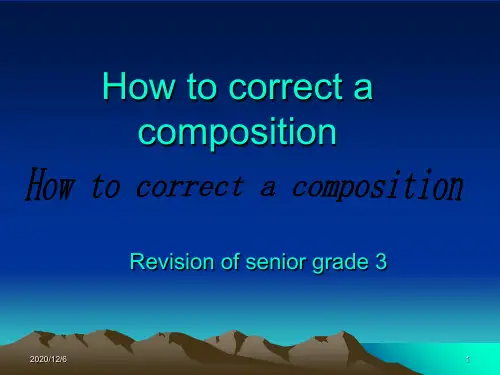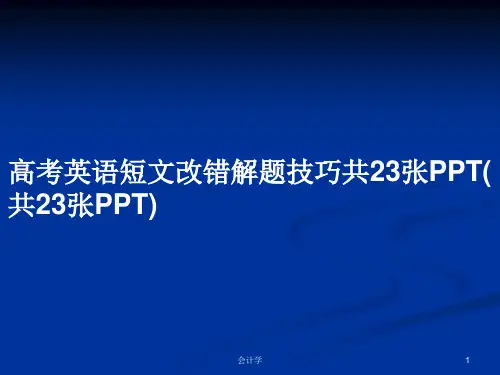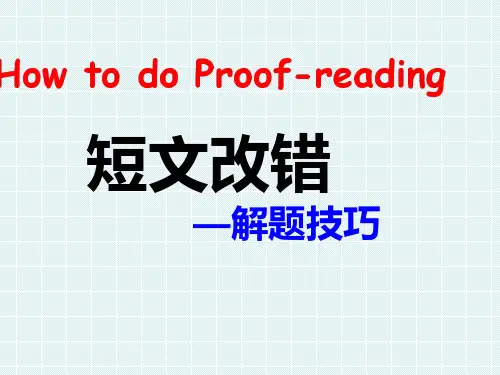2. Hard work have made him very ill. 解:主语和谓语在数上的一致性。本句 的主语Hard work是不可数名词,谓语 动词应用单数,应将have改为has。
十、非谓语动词。
1. Have tea in the late afternoon provides a bridge ...
解:动词-ing形式短语作主语。provides在句中 作谓语,其前面的部分是主语,应将Have改为 Having。 2. Felt hungry, we built a fire by the lake and
barbecued the fish. 解:动词-ing形式短语作原因状语。we和feel是 主谓关系,应将Felt改为Feeling。
1. ... it had a connection by the British porcelain (瓷器) industry.
解:介词的用法。表示“和……有关系”用介词 with或to。by表示“被;凭借;经由;由于”。 故应将by改为with或to。
2. Every day, he spends too much time with his
5. 看到固定短语、词组时,要检查副词、介 词、冠词等是否有使用错误或缺失。
短文改错涉及面广,综合性强,但是 有一定的规律性。 一、冠词。主要考查冠词表示泛指、特指 的用法及固定搭配中冠词的使用。
1. ... and fish was caught. 解:不定冠词。“一条鱼被抓住了”。fish 在本句中是单数可数名词,是泛指,故在 前面加不定冠词a。
面的整个句子,并用逗号与后面的句子分开, 这里应将Interesting改为Interestingly,表示 “有趣的是”。类似的副词还有surprisingly, naturally, hopefully, normally等。







